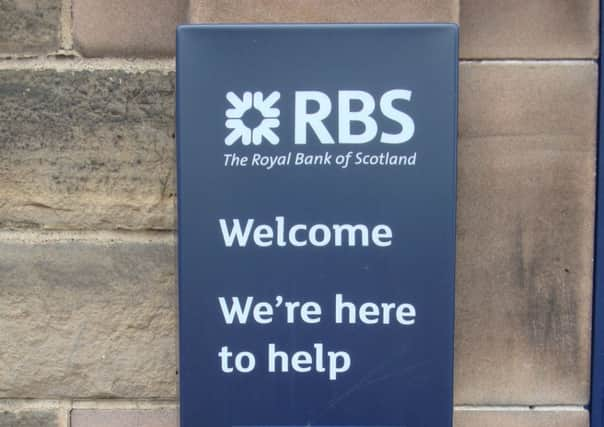COMMENT: RBS and Russia | mixed news on US jobs


But we should be in no doubt that an economic war with Vladimir Putin will cost both sides – especially if Russia defaults on its substantial western debts.
RBS is a case in point. The bank has an exposure to Russian clients of around £2.1 billion, including £900 million of corporate lending. Group profits before tax for the first half of the financial year were £2.65bn – encouraging unless international events conspire to make business difficult.
Advertisement
Hide AdAdvertisement
Hide AdAmerica and the EU are hoping the mere threat of sanctions will persuade Putin to back down. That could yet happen. But Putin is by nature both an opportunist and a gambler. Which means he might miscalculate.
Russian companies, including state entities, owe more than $700bn to foreign lenders – meaning a bank near you. Some $10bn of this sum needs to be rolled over every month. And which company is first in line when western creditors cut off refinancing? Oil giant Rosneft, which has to find around $26bn by the end of 2015.
But Rosneft is also in close partnership with BP. Only 18 months ago, BP swapped its half share in TNK. In return, it got a 20 per cent stake in state-owned Rosneft, which acquired TNK..
Now everything threatens to unravel.
My feeling is that Putin will offer the West a compromise. True, the Kremlin supplies Europe with a lot of its gas. But the EU has been building up its gas reserves and could in a pinch burn more coal. Besides, Russia badly needs fresh investment to modernise its oil and gas industry – around $750bn worth. Where is that going to come from if western cash is cut off? One answer is from the Russian Central Bank’s $478bn reserves. But at the current rate of capital flight from Russia, these won’t last very long.
Bears could come home to roost, Goldilocks
July marked the sixth month in a row in which the US economy added more than 200,000 jobs to the non-farm payroll.
That’s the “bad” news. The “good” news is that last month’s increase in employment was only 209,000 – well down on the 298,000 surge in June. In fact, when people returning to the labour market are taken into account, the headline rate of unemployment actually rose in July. How can that be welcomed by the markets?
Because, of course, it shows the American economy is growing but not fast enough to stoke the fires of inflation, which would force the Federal Reserve to boost interest rates. In other words, the US economy is not too hot and not too cold, as Goldilocks discovered.
But remember what happened to Goldilocks when the bears came home.